Are you experiencing frequent power outages or flickering lights? It might be time to consider upgrading your residential electrical panel with Leopard Electric’s expert services. The electrical panel plays a crucial role in distributing electricity throughout your home, and an outdated or overloaded one can lead to potential safety hazards. Let’s discuss the importance of upgrading your residential electrical panel, signs that indicate it’s time for an upgrade, and factors to consider when choosing the right size for your home. We’ll also provide a breakdown of the costs involved in upgrading to different service panels and tips on hiring a professional electrician. Safety is our top priority, so we’ll also address precautions to take during an upgrade and common questions about electrical panel upgrades. Don’t compromise on safety, let us help you with all your electrical panel needs.
Understanding the Importance of a Residential Electrical Panel Upgrade
Upgrading your home’s electrical panel ensures safety by preventing potential hazards and increasing energy usage efficiency. With modern homes requiring more power, an upgraded panel caters to these needs and provides a flexible option for power distribution while also offering a federal tax credit. The new panel also aligns with the standards set by the National Fire Protection Association (NFPA), ensuring safety and reliability. Additionally, it allows for the safe installation of a commercial electrical panel and protects the neutral wire within a durable flexible plastic jacket, ensuring longevity and functionality.
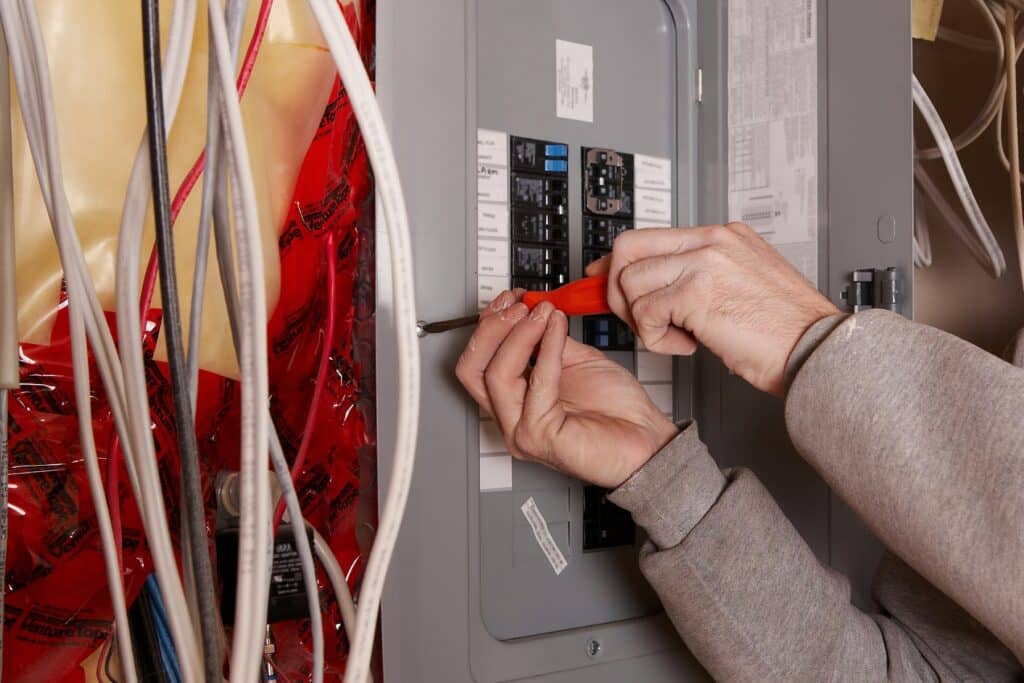
The role of an Electrical Panel in your home
The electrical panel plays a critical role in managing the power flow within your home, serving as the main breaker to control the electrical load. It is responsible for distributing power to appliances, light fixtures, and HVAC systems, ensuring safety standards and compliance with Southeast Michigan local codes. Essentially, it is crucial for effectively managing your home’s electrical system and is an integral component in maintaining a safe and efficient electrical setup within your residence.
Why service panel upgrades are crucial
Crucial for achieving compliance with local building codes, service panel upgrades also reduce the risk of electrical fires and shock hazards. Upgrades are essential as modern homes demand more energy, putting pressure on older panels. Addressing the increasing electrical load of devices and appliances, upgraded panels ensure safety and efficiency. By meeting the energy demands of contemporary homes, upgraded panels play a pivotal role in maintaining safety standards
Analyzing the Need for an Electrical Panel Upgrade in New and Old Homes
Analyzing the necessity of an electrical panel upgrade involves recognizing signs of aging, such as frequent circuit breaker tripping. For new homes, upgrading accommodates future electrical needs and ensures compliance with safety standards. Old homes benefit from upgrades by eliminating potential hazards associated with outdated wiring systems. Upgrading commercial electrical panels and meter boxes is crucial for maintaining the safety standards set by the National Fire Protection Association. The use of flexible plastic jacket conduit for the neutral wire is essential for a safe electrical service upgrade.
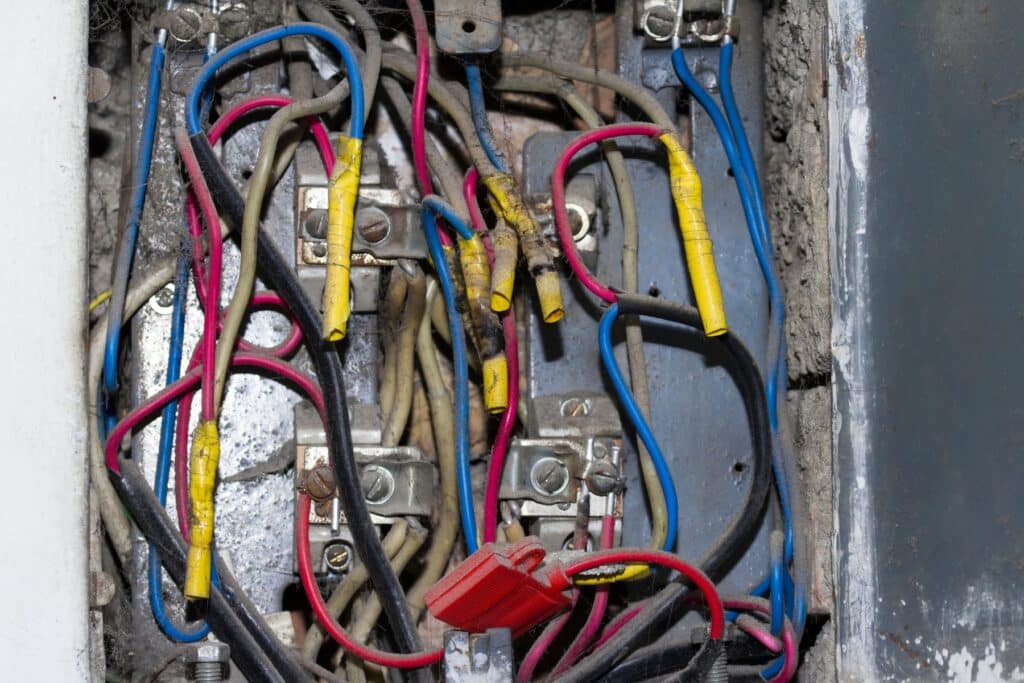
Signs of an aged Electrical Panel needing an upgrade
If you notice constant tripping of circuit breakers, flickering lights, or dimming when using appliances, a burning smell or sparks from the panel or outlets, or have outdated panels with fuses instead of circuit breakers, it may be time for an electrical panel upgrade. Additionally, adding new appliances or electrical devices that overload the current panel capacity, or home renovations requiring more power supply are clear signs that an upgrade is necessary. These signs indicate the need to address the aging electrical panel promptly.
Reasons to upgrade an Electrical Panel in a newly constructed home
When constructing a new home, the increased power demands from modern appliances and electronics necessitate an electrical panel upgrade. Meeting building codes and safety requirements is paramount for a newly constructed home. Furthermore, upgrading the electrical panel improves energy efficiency, reduces electricity costs, and adds capacity for future home expansions or renovations. This upgrade ensures the overall reliability and performance of the electrical system, aligning with the highest standards of the National Fire Protection Association.
Costs Involved in Upgrading a Residential Electrical Panel
Upgrading a residential electrical panel is essential due to increased power needs, safety concerns, and home renovations. The cost varies based on the panel size and installation complexity. While homeowners may attempt a DIY upgrade, hiring a licensed electrician is recommended for safety and compliance. Benefits include improved safety, energy efficiency, and increased home resale value. Factors affecting costs will be discussed, including a breakdown of upgrading to different amp service panels and cost-influencing factors.
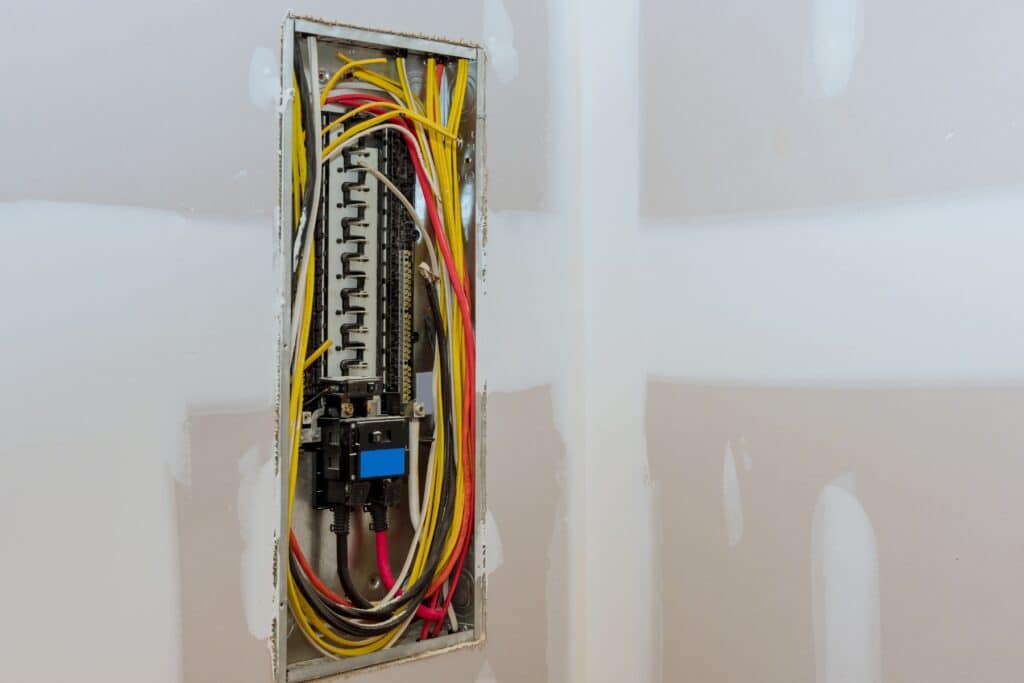
Factors affecting the cost of an Electrical Panel upgrade
When considering the cost of an Electrical Panel upgrade, several factors come into play. The condition of the existing electrical panel significantly impacts the overall costs. Upgrading the electrical wiring alongside the panel can also contribute to increased expenses. Additionally, the location and accessibility of the electrical panel can influence labor costs. The complexity of the upgrade, particularly the addition of new circuits, is another key factor affecting the total costs. Material costs, including the new panel, circuit breakers, and wiring, also play a significant role in determining the overall upgrade costs.
Ensuring Safety during an Electrical Panel Upgrade
Prioritize safety by shutting off the main breaker before commencing any electrical panel work. Utilize proper safety gear, including insulated gloves and goggles, when handling electrical components. To prevent potential hazards and electrical fires, avoid overloading circuits during the upgrade. Ensure the electrical system is adequately grounded to mitigate safety risks during the panel upgrade. Adhere to safety standards and conduct regular inspections to ensure a safe electrical panel upgrade.
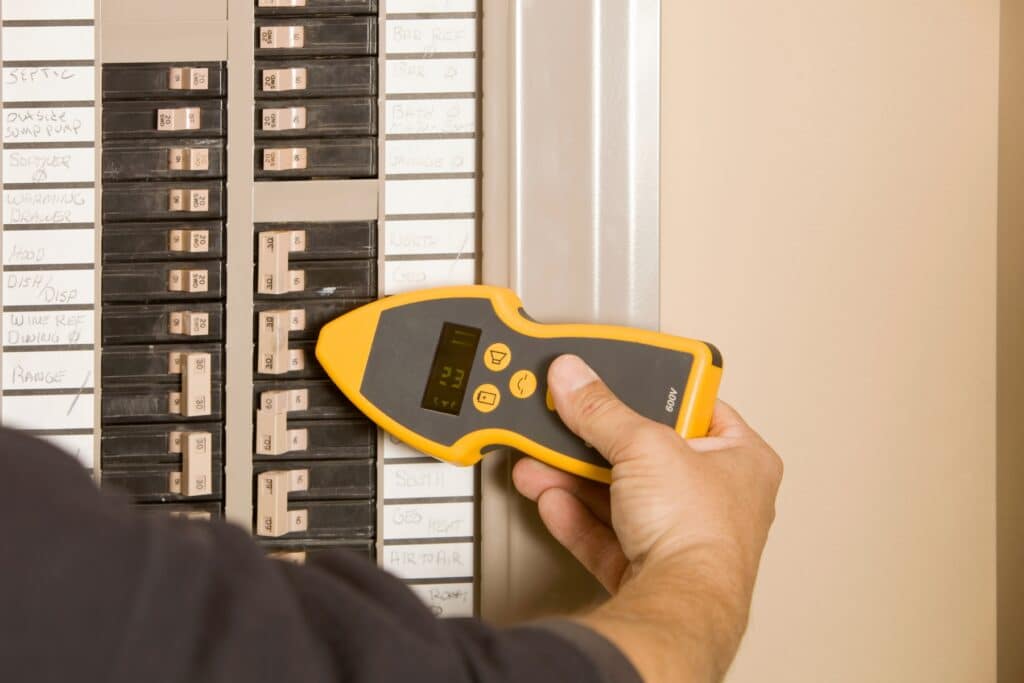
Precautions to take during an Electrical Panel Upgrade
During an electrical panel upgrade, it’s crucial to identify and label all electrical wires and conductors for clarity. Protection from moisture and potential damage is essential to safeguard electrical components. Verify the insulation and integrity of electrical wiring to prevent safety hazards. It’s paramount to prioritize safety by avoiding contact with live electrical wires and conductors. Adhering to safety protocols, local codes, and standards ensures a safe electrical panel upgrade. Following these precautions mitigates potential risks and ensures a smooth upgrade process.
Dealing with potential issues during an upgrade
During an upgrade, addressing potential hazards, meeting safety standards, and accommodating modern energy usage is crucial. A licensed electrician evaluates the necessity of an electrical panel upgrade, especially in older homes or during renovations to support new appliances and HVAC systems. A well-executed upgrade prevents electrical fires, shocks, and other potential hazards, promoting safety and efficiency. By mitigating these issues, homeowners can ensure a secure and reliable electrical system.
Addressing Common Questions Around Electrical Panel Upgrades
Upgrading a residential electrical panel is essential for ensuring the home’s electrical system can manage the load and accommodate additional appliances. This upgrade may involve replacing the existing panel with new wiring to align with local building codes, increasing the electrical load capacity. Assessing the panel’s amperage and wiring is vital for safety reasons and to prevent potential hazards like short circuits and electrical fires. By addressing these concerns, a residential electrical panel upgrade guarantees safety standards are met and potential risks are mitigated.
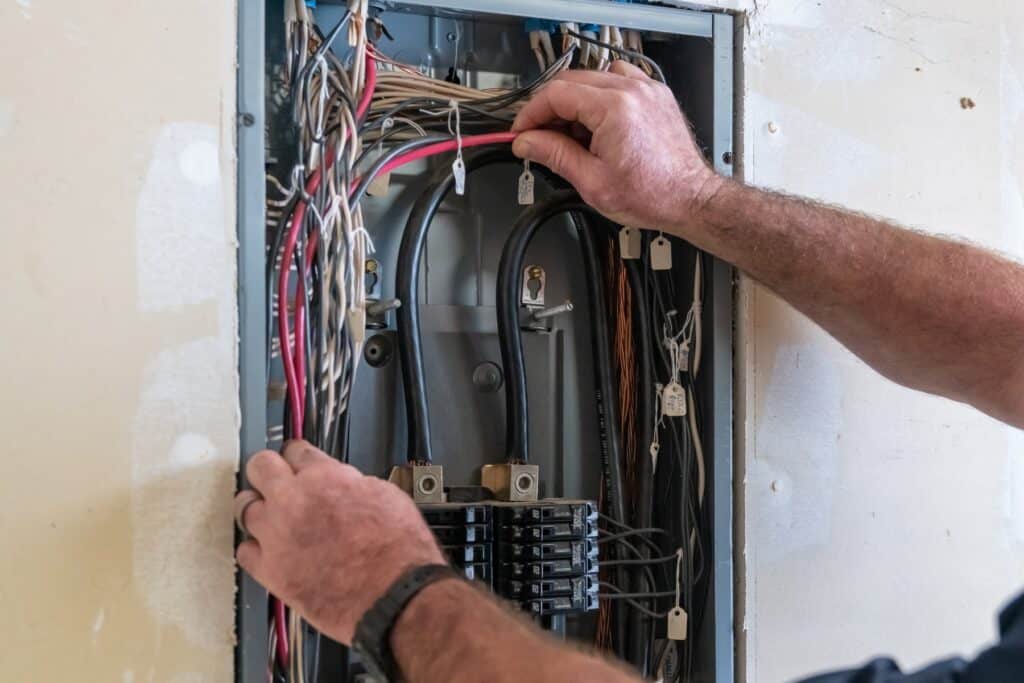
Does an Electrical Panel upgrade increase your home’s value?
Upgrading your electrical panel not only enhances safety and energy efficiency but also adds value to your home. By ensuring that your electrical system meets safety standards and incorporating modern features, an upgraded panel reflects a commitment to quality and can be a selling point for potential buyers. Additionally, it demonstrates compliance with local building codes, improving the overall value of your property.
Upgrade Your Home’s Electrical Panel with Leopard Electric
Upgrading a residential electrical panel is not only important for the safety and efficiency of your home’s electrical system but also necessary to meet the increasing power demands of modern households. Whether you have an old home with an outdated panel or a new construction project, understanding the signs and reasons for an upgrade is crucial. It is recommended to consult a professional electrician who can assess your specific needs and help you choose the right size panel for your home. While there are costs involved in the upgrade process, it is an investment that pays off in terms of improved functionality and increased property value. Don’t compromise on safety – always hire a qualified electrician for the installation. If you’re in Southeast Michigan, Leopard Electric is here to assist you with all your service panel upgrade needs.


